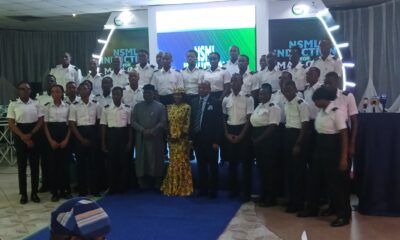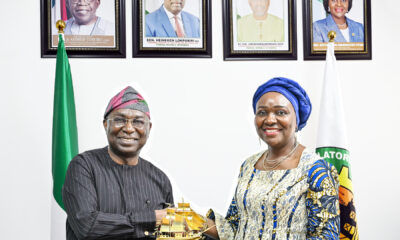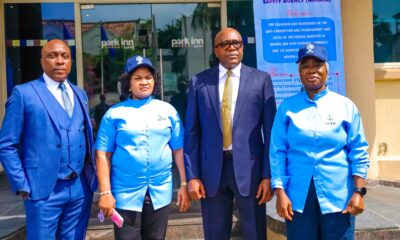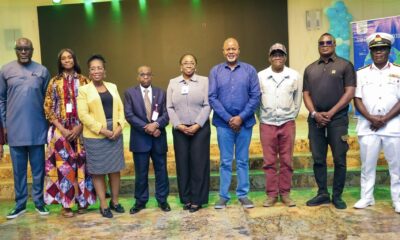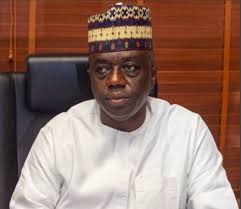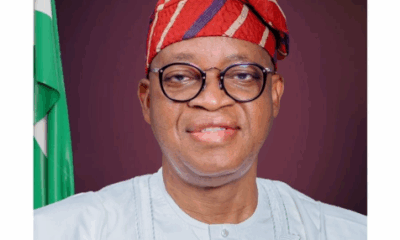Business
FG to Replicate Lekki Deep Seaport Model Nationwide — Oyetola
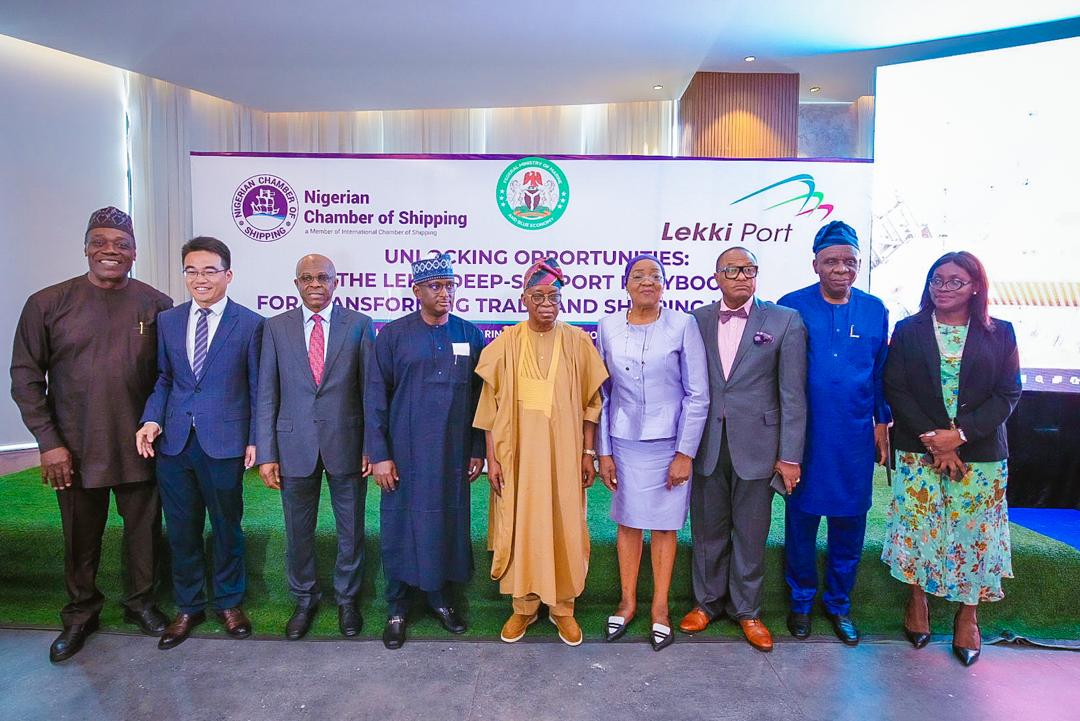
BY GBOGBOWA GBOWA
The Federal Government has unveiled plans to replicate the transformative success of the Lekki Deep Seaport across Nigeria’s maritime landscape, positioning the sector as a cornerstone of national economic growth.
Speaking at a high-level Breakfast Meeting hosted by the Nigerian Chamber of Shipping in Victoria Island, Lagos, the Honourable Minister of Marine and Blue Economy, His Excellency Adegboyega Oyetola, CON, emphasized that the Lekki Deep Seaport serves as a blueprint for modernizing Nigeria’s port infrastructure and unlocking new trade opportunities.
“The maritime industry stands at the heart of our economic aspirations — not merely as a conduit for trade, but as a catalyst for industrial growth, job creation, and regional integration,” Oyetola said. “Our vision is clear: to build a modern, safe, efficient, and globally competitive maritime sector that fully unlocks Nigeria’s economic potential.”
The event, themed “Unlocking Opportunities: The Lekki Deep Seaport Playbook for Trade and Shipping in Nigeria,” brought together key stakeholders from government agencies, terminal operators, shipping companies, and the organized private sector.
Valued at $1.5 billion, the Lekki Deep Seaport has already begun reshaping West Africa’s maritime landscape. With the capacity to handle 1.2 million TEUs and accommodate large vessels, the facility has generated thousands of jobs and alleviated long-standing logistical bottlenecks through the completion of critical access roads.

“Cargo now moves out faster, investors move in with confidence, and trade flows without unnecessary delay,” the Minister noted, adding that the port currently operates at just 20 percent capacity — signaling vast opportunities for further investment.
Oyetola outlined five key pillars of the “Lekki playbook”: strategic location, robust public-private partnerships, integrated transport links, supportive policies, and technology-driven operations. These principles, he said, will guide the modernization of other ports, including Apapa, Tin Can Island, Onne, Calabar, and Rivers.
The minister also announced the finalization of the Port Community System, integrated with the National Single Window, to create a paperless and transparent digital environment for maritime stakeholders.
In a bid to strengthen indigenous participation, the Minister directed the Nigerian Maritime Administration and Safety Agency (NIMASA) to commence immediate disbursement of the Cabotage Vessel Financing Fund (CVFF) to qualified Nigerian shipowners. This move, he said, is aimed at building a strong national fleet and establishing a National Flag Carrier.
“The Lekki Deep Seaport is proof of what can be achieved when policy, vision, investment, and execution align,” Oyetola concluded. “We must replicate, refine, and scale this model for the prosperity of Nigeria and the African continent.”
Among the dignitaries in attendance were Wang Qiang, Managing Director of Lekki Port LFTZ; Dr. Abubakar Dantsoho, Managing Director of Nigerian Ports Authority; Alhaji Aminu Umar, President of the Nigerian Chamber of Shipping; Vivian Chimezie-Azubuike, Director General of the Chamber; and Engr. Fatai Adeyemi, Executive Director of Operations at NIMASA.

